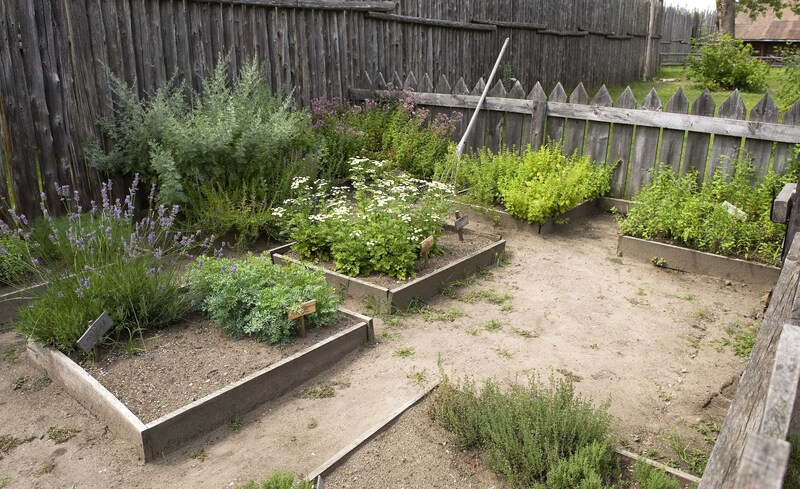Gardening: 10 Ways to Keep Rodents at Bay
Posted on 02/09/2025
Gardening can be an incredibly rewarding activity, providing beautiful flowers, fresh vegetables, and a serene environment. However, one of the common challenges many gardeners face is dealing with rodents. These pesky intruders can wreak havoc on your garden, eating away at plants and causing various other issues. Fortunately, there are several effective strategies to keep these unwelcome guests at bay. This article will explore 10 ways to prevent rodents from ruining your gardening efforts.
Understanding the Threat
Before diving into the methods to keep rodents away, it's essential to understand why they are attracted to your garden in the first place. Rodents, such as mice, rats, and squirrels, are usually in search of food, water, and shelter. Gardens tend to be an ideal environment for them, offering abundant food sources, water from irrigation systems, and places to hide. By understanding their needs, you can more effectively create a garden environment that's less appealing to them.

1. Maintain Cleanliness in the Garden
One of the simplest ways to deter rodents is by maintaining a clean and clutter-free garden. Remove any fallen fruits, vegetables, or plant debris that can attract rodents. Regularly rake your garden to eliminate hiding places for these pests. A clean garden is less inviting to rodents, as it removes both their food sources and potential shelters.
2. Use Raised Garden Beds
Raised garden beds can be an excellent solution for keeping rodents away from your plants. These beds make it more difficult for rodents to access your plants directly. Additionally, you can install a mesh lining at the bottom of the raised bed to further prevent rodents from burrowing upwards.
3. Install Physical Barriers
Physical barriers are another effective way to keep rodents out of your garden. Installing fencing around your garden can be beneficial. Use hardware cloth or wire mesh with small holes to make it difficult for rodents to squeeze through. Make sure the barrier extends below ground to prevent burrowing.
4. Utilize Natural Predators
Encouraging natural predators can help control the rodent population in your garden. Birds of prey, such as owls and hawks, can be your allies in this regard. Setting up perches or nesting boxes can attract these birds to your garden. Additionally, some gardeners find that having outdoor cats can help keep rodents at bay.
5. Employ Rodent-Repelling Plants
Certain plants are known to repel rodents thanks to their strong scents. Planting these around the perimeter of your garden can act as a natural deterrent. Some effective rodent-repelling plants include:
- Mint
- Lavender
- Garlic
- Onions
- Marigolds
These plants can not only help keep rodents away but can also add beauty and variety to your garden.
6. Use Ultrasonic Repellent Devices
Ultrasonic repellent devices emit high-frequency sounds that are unpleasant for rodents but inaudible to humans. These devices can be placed around your garden to create a rodent-unfriendly environment. While their effectiveness can vary, many gardeners find them to be a useful tool in their rodent control arsenal.
7. Apply Natural Repellents
Natural repellents can be an effective way to keep rodents at bay. Substances like peppermint oil, crushed red pepper, and garlic can deter rodents. These can be applied directly to plants or around the garden. Sprinkling used coffee grounds around garden beds can also serve as a natural repellent, as the scent is unpleasant to rodents.
8. Secure Compost Bins
Compost bins can be a major attraction for rodents due to the abundance of food waste. Ensure your compost bin is rodent-proof by using a bin with a secure lid and fine mesh wiring. Avoid adding meat, dairy, and oily foods to the compost, as these are particularly enticing to rodents.
9. Regularly Inspect and Maintain Your Garden Structures
Rodents can find their way into garden sheds, greenhouses, and other structures, using them as safe havens. Regularly inspect these buildings for any gaps, holes, or other entry points and seal them off. This proactive approach will minimize the risk of rodents using these structures as shelter and then moving into your garden.

10. Set Traps and Baits
Finally, setting traps and baits can help control a rodent population. Various types of traps are available, including snap traps, live traps, and electric traps. Place these traps strategically around your garden, particularly near areas with visible signs of rodent activity. Ensure to check the traps regularly and dispose of the captured rodents humanely.
When using baits, opt for non-toxic and eco-friendly options to avoid harming pets and other wildlife. Many natural bait options exist that are effective against rodents but safer for the environment.
Conclusion
Managing rodents in your garden requires a combination of preventive measures, natural deterrents, and, in some cases, active control methods. By understanding what attracts rodents to your garden, you can implement strategies that make your garden less appealing to them. From maintaining cleanliness and using physical barriers to employing natural predators and repelling plants, there are numerous ways to protect your garden from these pests. Whether you are a seasoned gardener or a beginner, these 10 tips can help you maintain a rodent-free garden, ensuring that your plants thrive and your gardening experience remains enjoyable.
Latest Posts
Easy Ways to Freshen Up Your Patio and Paving for Summer
Unique Autumn Garden Inspiration: Planting with the Season in Mind
Quick and Effective Ways to Sharpen Your Garden Shears at Home
Easy Ways to Keep Your Artificial Turf Looking Brand New
Elevate Tranquility With These Zen Garden Planting Inspirations






 Certified and experienced landscapers
Certified and experienced landscapers



 Get a Quote
Get a Quote